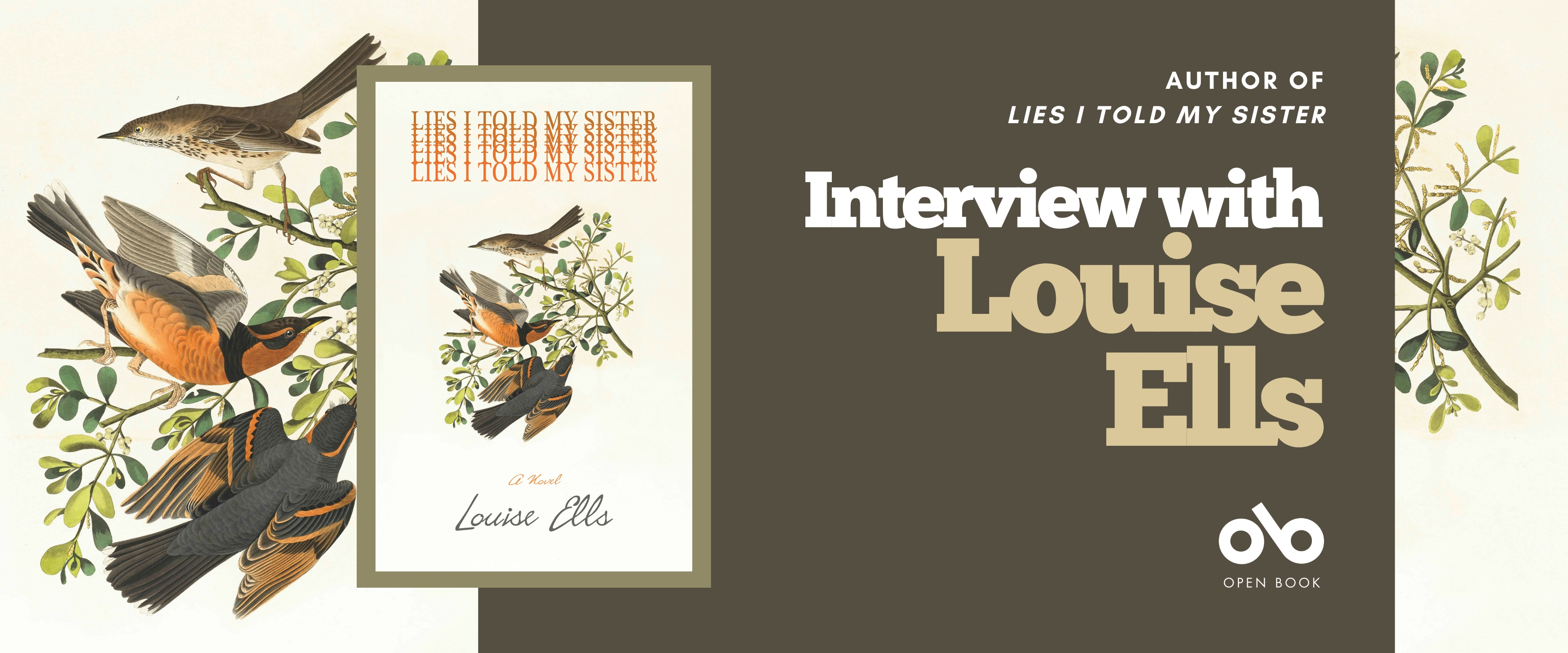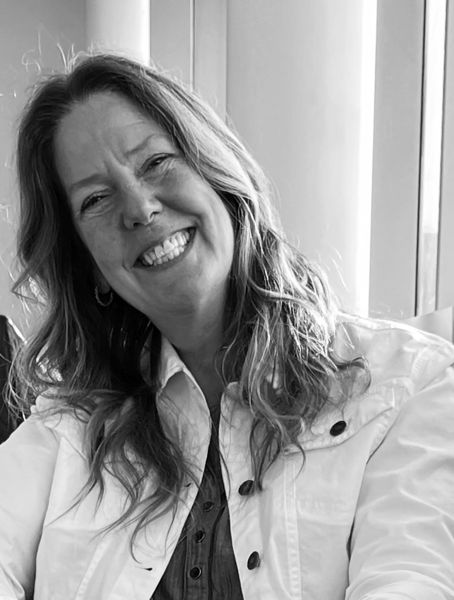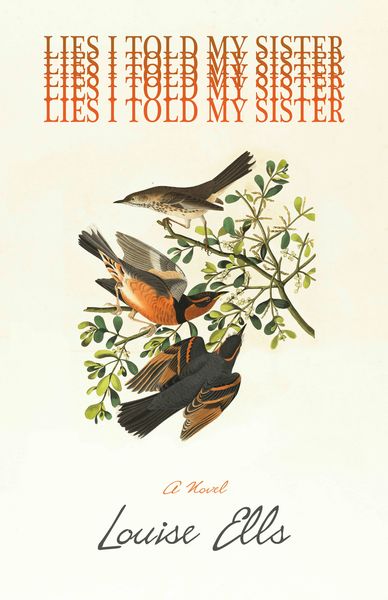Two Sisters Must Reckon with Deeply-Held Family Secrets in Louise Ells' New Novel, Lies I Told My Sister
After being named a Hawthornden Fellow, author Louise Ells was given the go-ahead to take the opportunity by her family, a crucial decision due to her caretaking duties for a husband living with dementia. But, without this blessing, the novel we're featuring today on Open Book would not have come to be.
In Lies I Told my Sister (Latitude 46), the author braves a complex and heartfelt family story about two estranged sisters who must reunite when the younger sibling's husband is severely injured in a car crash. While waiting in the hospital for updates on his condition, these sisters dig into their childhood and try to reckon with the central family tragedy that set them adrift, gradually pulling at the threads of deeply-held secrets that kept them apart.
Read more about this moving and beautifully drawn novel in this Long Story Novelist Interview with the author!
Open Book:
How did you start writing this novel?
Louise Ells:
In January 2017 I was lucky enough to be offered a month-long writing retreat at Hawthornden Castle, in Scotland. I arrived as a short story writer with a clear plan for the collection I was going to work on . . . but over breakfast the first morning I listened to my fellow writers talking about the freedom offered by such a long stretch of time and gave myself permission to play with a vague idea I had for a novel.
That was a magical experience. Never before had I written so prolifically, so proficiently. Never before had I so completely inhabited my characters’ fictional world; I walked with my characters around the Castle, across fields, through the woods. They woke me in the night, they sat with me at lunch, we had long conversations together. Cocooned in the Castle’s library, I wrote an average of over 5,000 words a day, and left the retreat with a (very rough) first draft of Lies I Told My Sister.
I am deeply grateful to the artists with whom I shared that experience: Gaia Holmes, Lindsay Macgregor, Keith Mansfield, Sue Reid Sexton, and Jakob Ziguras. My silent, solitary writing time was bookended each day by inspirational conversations, spontaneous readings, and invaluable encouragement.
OB:
Notes about your novel’s setting-
Your CanLit News
Subscribe to Open Book’s newsletter to get local book events, literary content, writing tips, and more in your inbox
LE:
I was born and raised in northeastern Ontario, in a house beside the Ottawa River where my mum still lives. I returned to that area after my 7 year long “gap year” (ha!) in Europe between high school and university. I returned again after surviving 12 years in an unhappy, unhealthy marriage in the Caribbean, and again after spending 6 marvellous years in England.
The Canadian Shield’s lakes, rivers, forests, and farmlands, and my childhood memories of them are what I dream about when I dream about “home.”
The first scene I wrote for Lies was set on a fictionalized version of the 100 acre woodlot my parents owned, where my sisters and I played as children. Lily, my protagonist, and her family needed maple trees to tap, space enough for a bonfire, and distance from the local hospital. When I realized that was Lily’s childhood home, I knew this would be the place that held both her best and worst memories, and somewhere she might long to return to, and somewhere she’d never actually be able to return to. One of Lily’s weaknesses is her inability to accept the need to let go once something is gone and that, coupled with her tendency towards indecision, often keeps her stuck in a remembered past.
The novel’s “now” takes place in an emergency waiting room because I wanted to echo the transient nature of Lily’s life with her first husband, Quentin, and the fragmentary quality of memory, through the use of liminality and a pattern of shifting thresholds. Growing up beside a mile-wide river, I learned from an early age the importance of experiencing and enjoying a view which could change in a split second, never to return. My paternal grandfather would not have used words like psychogeography or dérive but he taught me how to pass time spent on a train in or in a queue by quietly observing people and places (and making up stories about them).
OB:
Did the ending of your novel change at all through your drafts? If so, how?
LE:
I structured an early version of my novel with the present day hospital scenes moving forward in time, and all Lily’s memories moving backwards, leading towards and ending with the “big reveal” of her sister Tansy’s death. It almost made sense in my head but it didn’t work on paper at all! It took me some time to realize that the story isn’t ‘Tansy’s death’ but ‘Lily living with the reality of Tansy’s death.’
I am deeply grateful to editors Pamela Mulloy and Adrienne Kerr who both spent a lot of time with my early drafts, patiently asking me questions to help me find the real narrative which I’d buried beneath extraneous scenes and random plot tangents. Heather Campbell’s and Matthew Foti’s close readings pointed out how Lily’s unresolved childhood trauma shaped both sisters’ lives, and that’s helped me (finally) cut all the neat bows I’d tried to tie, leaving instead the necessary loose ends and unanswered questions to provide an ending without full closure.
OB:
If you had to describe this book in one sentence, you would . . .
LE:
. . . take a deep breath and use a run-on sentence full of grammatical errors!
At what point does saying nothing become a lie, and how do you tell the person you love most in the world the truth, when that means you risk losing her forever; a novel of secrets hidden and secrets divulged, Lies I Told My Sister is a story about love, and family, and knowing how to hold on and when to let go . . . it explores how our childhood can shape us, and how much power we ascribe to the stories we tell–and believe–about ourselves.
OB:
What was the strangest or most memorable experience during the writing process for you?
LE:
Has it really only been seven and a half years since that morning in Scotland when I wrote something along the lines of, “The Maple Boil had always been my favourite family tradition.”?
I was at Hawthornden on January 20, 2017, when that President of the U.S. was sworn in. So there were those steadily more horrifying four years in the background. Dementia is a progressive illness, and my husband’s early-onset dementia progressed. In late autumn 2019 he moved into a long-term care home, and I struggled with feelings of guilt, inadequacy, and failure, along with deep sorrow. Four months later the Covid pandemic changed the world completely. In June 2022, when Roe v. Wade was overturned, the reproductive rights Canadian Lily had always taken for granted were suddenly denied her American neighbours. Someone sent me a cartoon of a novelist working against a backdrop of dumpster fires . . .
And yet, and yet, at the same time wonderful things also happened. A family moved in to the house next door, and I suddenly had a friend and her daughter to walk with (outdoors, socially distancing). Thank you, Jen! Thank you, Heidi! I have no idea how I was blessed enough to meet author Kerry Clare, but I was, and she both taught me how to blog and how to navigate Instagram. My friend Donna introduced me to her sister, Lorie, and I had another walking friend. As everything pivoted to online meetings, I was suddenly able to attend a multitude of authors’ talks, book launches, and readings. Through it all, I had the joy of teaching-and learning!-from the brightest, most talented students at Nipissing University and Canadore College. And most recently, a door has opened unexpectedly and I have walked through it to discover a new friend and travel partner.
OB:
Who did you dedicate your novel to, and why?
LE:
My novel is a love letter to my sister and best friend, Caroline. We share over fifty years of memories and stories; we know what it is to lose a sister and to lose a father, and we know that loving a relative is a choice. I am beyond lucky that we choose to love each other, and we also really like each other.
But I have dedicated Lies to my husband, Doug, who is living with dementia. He hasn’t been able to read for a long time, and no longer recognizes me, but I know him, I see him, I love him. He supported me, emotionally and financially, when I decided to return to school for my Creative Writing MA, and PhD. He gave me his blessing to go to Hawthornden for a month at a time when his dementia meant that he could no longer live by himself. In short, this novel would not exist without him.
_________________________________________
Louise Ells was born and raised in Northeastern Ontario. After years of travel, she moved to Cambridge and earned her PhD in Creative Writing. She was a Hawthornden Fellow in 2017, and her short story collection, Notes Towards Recovery (Latitude 46, 2019). Louise teaches at universities and colleges in England and Canada and currently lives just north of Toronto, where she can often be found in her library surrounded by books and snuggled up with her cats.







